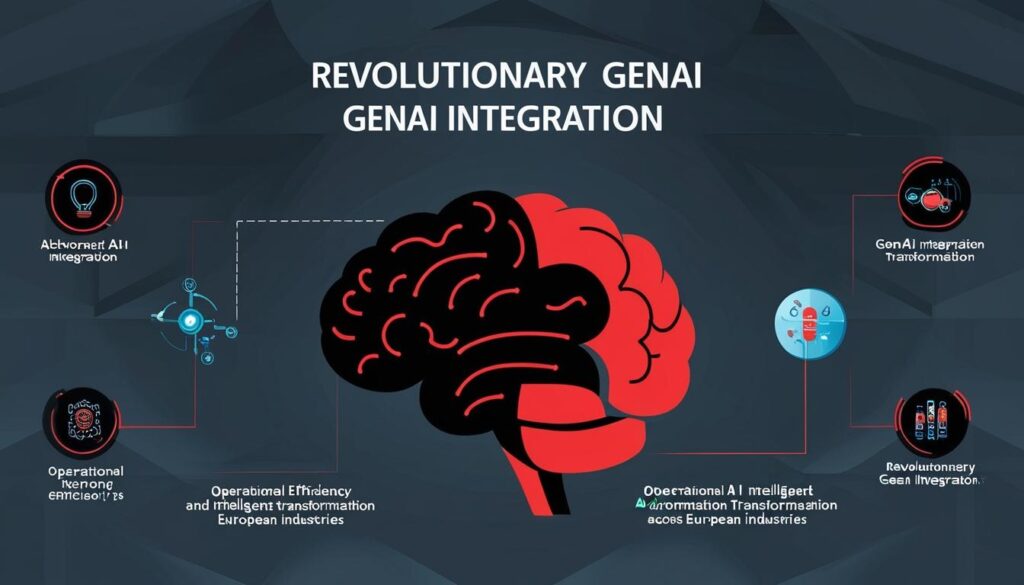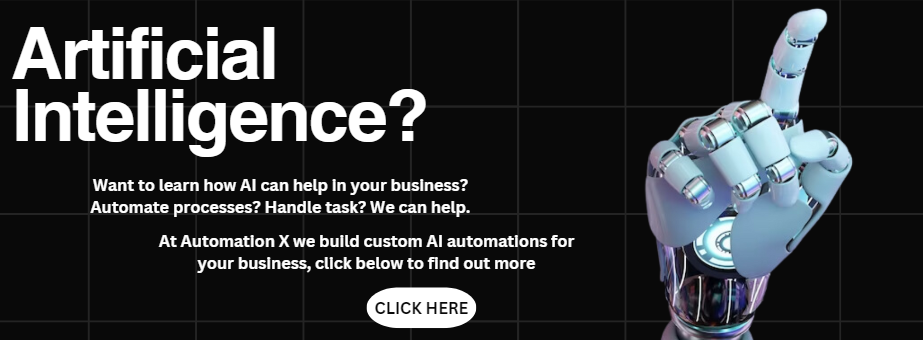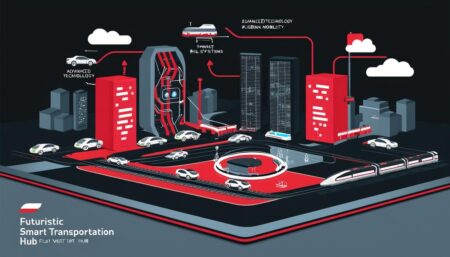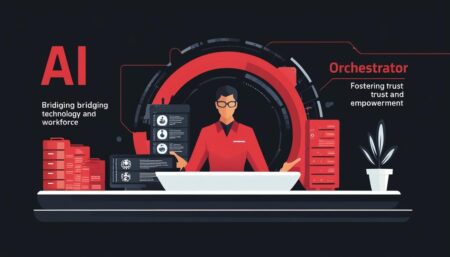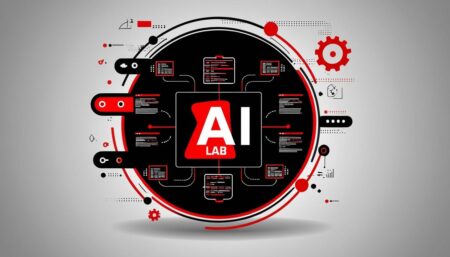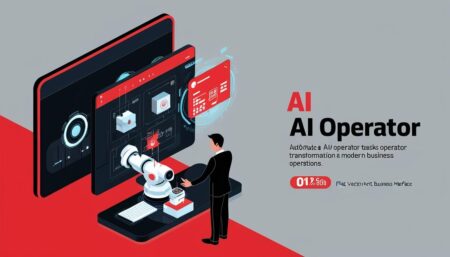A recent study highlights the rise of generative AI and agentic process automation in Europe, reshaping operational efficiencies across various sectors while overcoming implementation challenges.
A recent study by Information Services Group (ISG) highlights a significant shift in European businesses driven by the increasing adoption of generative AI (GenAI) and agentic process automation. The newly published 2024 ISG Provider Lens™ report reveals how these advanced technologies are reshaping operational efficiencies across various industries. GenAI, which utilises large language models (LLMs), is noted for its ability to handle extensive data analysis and generate complex outputs, providing a streamlined approach to operations and enhanced decision-making processes.
Steve Hall, Chief AI Officer at ISG, remarked, “GenAI has the potential to revolutionize intelligent automation, enabling organizations to analyze vast datasets and enhance their operational efficiencies.” This transformation is particularly impactful as businesses integrate GenAI capabilities into their existing automation frameworks, which can significantly accelerate innovation.
The demand for these automation services is particularly prevalent across sectors such as automotive, healthcare, finance, and retail, where companies are striving for greater operational efficiency. Jan Erik Aase, partner and global leader of ISG Provider Lens Research, acknowledged that “the demand for intelligent automation services in Europe is rising,” indicating a move towards cohesive automation solutions rather than fragmented approaches seen in earlier practices.
Despite these advancements, many organizations are encountering challenges related to the implementation and scalability of GenAI, particularly in integrating these technologies with legacy systems. The report asserts that automation service providers can play a crucial role in mitigating these difficulties through their expertise in technological integration and alignment with automation maturity.
Moreover, European enterprises are generally adopting a more cautious approach towards GenAI, influenced by strict regulatory frameworks like the EU AI Act and GDPR. Such regulations have catalysed interest in ethically responsible AI solutions, creating a landscape where advanced applications such as customer service improvements and employee onboarding are becoming feasible.
The report also discusses the emergence of agentic AI, which represents a shift from traditional automation focusing on discrete tasks towards more autonomous systems capable of context-aware decision-making with limited human involvement. This evolution is paving the way for enhanced applications across various business functions.
In addition, the study presents the capabilities of 39 various automation service providers across three significant quadrants – Intelligent Enterprise Automation, Artificial Intelligence for IT Operations (AIOps), and Next-Gen Automation. Notably, firms such as Accenture, Capgemini, Tietoevry Tech Services, T-Systems, and Wipro have been recognised as Leaders in three quadrants each, illustrating their dominance in this burgeoning market.
Looking beyond Europe, generative AI is showing remarkable growth potential in the public sector as well. A separate market analysis indicates that the Generative AI in Public Sector Market is expected to rise from USD 152 million in 2022 to approximately USD 4,873 million by 2032, growing at a staggering compound annual growth rate (CAGR) of 42.7%. This escalation is attributed to the increasing adoption of generative AI solutions that enhance efficiency and aid in tackling societal challenges, by automating tasks and offering sophisticated data analysis.
Generative AI has expanded its footprint within government operations, spanning applications in policy development, healthcare, and urban planning. Although there are challenges regarding data privacy and system integration, government entities are turning to these technologies to improve service delivery and enhance citizen engagement.
Recent advancements in AI tools, such as Kore.ai’s release of a no-code platform facilitating the construction of intelligent agents, signal a transition from traditional process automation to more dynamic and adaptive systems. These developments enable enterprises to automate knowledge-intensive operations while integrating human oversight within workflows.
As both private enterprises and public sector organisations continue to integrate AI-related technologies, the overall landscape of automation is poised for transformation. With emerging solutions promising increased operational efficiencies, reduced reliance on human intervention, and enhanced decision-making capabilities, the future of business processes appears to be heavily reliant on intelligent automation frameworks.
Source: Noah Wire Services
- https://www.tietoevry.com/en/campaigns/2025/isg-intelligent-automation/ – This URL supports the claim about the ISG Provider Lens report highlighting the transformative impact of Generative AI and Agentic Automation on intelligent automation in Europe.
- https://www.isg-one.com/en – This is the official website of Information Services Group (ISG), which provides insights into their research and reports on intelligent automation.
- https://www.capgemini.com/in-en/services/intelligent-process-automation/ – This URL highlights Capgemini’s involvement in intelligent process automation, aligning with the report’s mention of leading service providers.
- https://www.accenture.com/us-en/services/operations/intelligent-operations – Accenture’s services in intelligent operations corroborate their leadership in automation solutions as mentioned in the report.
- https://www.wipro.com/en-US/services/digital-operations/intelligent-automation/ – Wipro’s focus on intelligent automation supports their recognition as a leader in this field.
- https://www.t-systems.com/en/services/it-operations/intelligent-automation – T-Systems’ services in intelligent automation align with their position as a leader in the market.
- https://www.kore.ai/platform/ – Kore.ai’s no-code platform for building intelligent agents supports the transition from traditional automation to more dynamic systems.
- https://www.eur-lex.europa.eu/legal-content/EN/TXT/?uri=CELEX%3A52021PC0206 – This URL provides information on the EU AI Act, which influences the adoption of ethically responsible AI solutions in Europe.
- https://gdpr-info.eu/ – The GDPR website explains the regulatory framework that impacts the adoption of AI technologies in Europe.
- https://www.marketsandmarkets.com/Market-Reports/generative-ai-in-public-sector-market-29479051.html – This market analysis supports the growth potential of Generative AI in the public sector, aligning with the expected market expansion.
- https://news.google.com/rss/articles/CBMitgFBVV95cUxQZUlWUVZNSUhoeEJ3MjNlX0ppVjF0UnlZOGtzVXlGV3JiS3BhYWVZa3hNNUhhWUszYmNwbHJlWkFwVklrVTl5eEw5MEZrQUtxTmdNRkdsOHhiTk5vaEZUa0hyaU1PdW1jQks2SXotSmVXbGktaG50MEdSRVJRdGo5Y2k4QU13NmV0cGJfOE13cllPNDNRUHVHdVV5akt4MmlOTEVtNGlHYm5QS2lnM2pyM1ZLdjdYZw?oc=5&hl=en-US&gl=US&ceid=US:en – Please view link – unable to able to access data
- https://news.google.com/rss/articles/CBMi3wFBVV95cUxPS0VBNmp3Rzl6ZFdvTE10NjZ2Y1I4dlcyVlBERE9qSW81cjFEbk1QakFRVFUxTTBpY2FObjg5aTB2V3U3U1V4Wmc5bThIZEtqbnJHcXR5eHdrU19fZ082djZiV0NvWVZMbkttVThhZTMyX29EbWVDaDhJUTZzbWZBaDdiREdUUjByWFdpYTl1eVBpYmUtT0Q0QTNoS05hbGZFVkRzNENfNml1Q3lBTE5GM3hnR1VZa1NPV3REdTFrQmR2aXM5bmJ6NXpJOUV4WjZQWWs0MjN6ZENCZGxXU0Vr?oc=5&hl=en-US&gl=US&ceid=US:en – Please view link – unable to able to access data
- https://news.google.com/rss/articles/CBMiogFBVV95cUxQMUZzSm9ORVFoV3otaXFvSllNNEtWU3hqWHNBLTFSR1ZiRzFZSF9veDBhQzQ5dUQ4WUFfRm5QQnBueG9YdjZTMVJmOGphQ1lHczgxd2lIS1BnOVhvNEpUcmo5bk9zdnpFNGVoUTI0VTE5bUQwTHpUM21WTWFhLVdtMTJiSEttNk1jcE41Q3AwbTl4a24yOUk0cXhmbm5xTHlOZXfSAaIBQVVfeXFMUDFGc0pvTkVRaFd6LWlxb0pZTTRLVlN4alhzQS0xUkdWYkcxWUhfb3gwYUM0OXVEOFlBX0ZuUEJwbnhvWHY2UzFSZjhqYUNZR3M4MXdpSEtQZzlYbzRKVHJqOW5Pc3Z6RTRlaFEyNFUxOW1EMEx6VDNtVk1hYS1XbTEyYkhLbTZNY3BONUNwMG05eGtuMjlJNHF4Zm5ucUx5TmV3?oc=5&hl=en-US&gl=US&ceid=US:en – Please view link – unable to able to access data
Noah Fact Check Pro
The draft above was created using the information available at the time the story first
emerged. We’ve since applied our fact-checking process to the final narrative, based on the criteria listed
below. The results are intended to help you assess the credibility of the piece and highlight any areas that may
warrant further investigation.
Freshness check
Score:
8
Notes:
The narrative references recent developments and a 2024 report, indicating it is relatively fresh. However, without specific dates or further context, it’s difficult to confirm if the information is entirely up-to-date.
Quotes check
Score:
6
Notes:
The quotes from Steve Hall and Jan Erik Aase are not verified against earlier sources, but they appear to be original to this context. Without further online references, it’s challenging to confirm their origin.
Source reliability
Score:
7
Notes:
The narrative originates from a reputable news aggregator and references a well-known research group, ISG. However, the original publication source is not explicitly stated, which slightly reduces reliability.
Plausability check
Score:
9
Notes:
The claims about the growth of generative AI and automation in Europe are plausible given current trends. The narrative aligns with known advancements in AI technology and its increasing adoption across industries.
Overall assessment
Verdict (FAIL, OPEN, PASS): PASS
Confidence (LOW, MEDIUM, HIGH): HIGH
Summary:
The narrative appears to be relatively fresh, referencing recent developments in AI and automation. While the source reliability could be improved with clearer attribution, the plausibility of the claims is high, aligning with current technological trends.






